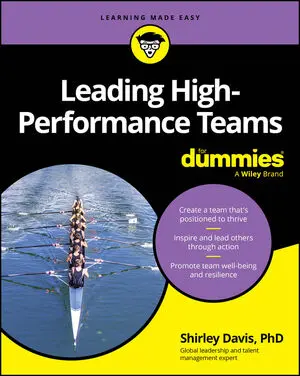Part of being a great leader is acknowledging that one generation is not better than another. Millennials are currently the youngest generation and they’re causing the most head-scratching right now. But as is the case with many lenses of diversity, the more diverse the better. Each generation brings their own talents to the table for a more holistic approach to any endeavor.
It’s up to you to create a better workplace for your employees, and understanding generational nuances and behaviors gives you that edge to then impact the bottom line and take action.Impacting the bottom line with millennials
People often dismiss generational theory as a soft science, one that is all fluff and no substance. They couldn’t be more wrong. Tapping into generational dynamics has far-reaching implications — and yes, financial ones as well. Though it can be easy to slough it off as a touchy-feely topic to help everyone just get along, in reality it’s a dollars-and-cents, bottom-line issue.Still not convinced? Consider this: The generations topic touches every realm of the working world. From recruiting and retention to marketing and selling, generational collisions can cost your organization big bucks. Think about that promising new recruit that you just spent the last year investing in only to see him walk out the door. There is no industry, company, or organizational strategy that wouldn’t benefit from generational insight. If you have any doubts, ask yourself whether you’re prepared to deal with these generational challenges that are either already here, or just around the corner:
- Recruiting:
- The next generation pipeline of talent is more diverse than ever. Do your recruiting strategies reflect this fact?
- Are your recruiting materials still a verbose booklet and a dense block of text, or are you tapping into social media and next-generation networks to recruit in a creative and dynamic way?
- Training:
- Gen Edge is a visual and resourceful generation. How do you create training that appeals to their unique learning style?
- Millennials seek to collaborate and connect with their colleagues. Do your training programs build in opportunities to make connections, maybe even friendships, for new hires?
- Retention:
- What are you doing to ensure that Xers don’t feel stalled in their careers and feel like the only way up is out of your organization?
- The average Millennial tenure at an organization is between three and five years. How are you proactively stemming the tide of Millennial attrition?
- Turnover:
- You just switched to an open-office layout. Why are your Xers and Boomers leaving in droves?
- Are you implementing creative open-door policies that make it easy for ex-employees to return? (Side note: These tend to become some of the most loyal employees. They say, “If you love something, let it go, if it comes back …” — you know the rest.)
- Succession planning:
- As Baby Boomers start to retire en masse, do you have a plan for retaining the institutional knowledge that will be walking out the door with them?
- Have you built successful mentorship programs that connect the next generation of leaders with seasoned veterans?
- Selling:
- Xers and Millennials want utmost transparency from their salespeople. Are you adapting to this new style of selling?
- Traditionalists are still looking for time and a personal touch from salespeople. Is your staff prepared to customize their sales approach?
- Marketing:
- Millennials are increasingly responding to companies that wear social responsibility on their sleeve. How are you weaving this into your marketing?
- Baby Boomers are not on board with the “you’re retiring, take it easy, slow down, and relax” messaging as they move into the next phase of their lives.
Turning the “what” into “so what” to manage millennials
Too often, those interested in the generations topic treat it like an academic study or a fun/interesting hobby and nothing more. They’ll soak in this new study or that latest survey and leave it at that. The information they’ve learned gets stowed away in a one-person tomb.It’s understandable — it’s a fascinating topic and it can be easy to get lost in the study of people, because people are fascinating. But while this topic is engaging as well as instructive, try and take things a step further.
You should feel confident to make the leap from awareness to action. Awareness is only half the battle. Action is the other half. We’ve tried to strike a balanced mix of understanding the why behind the what with strategies to turn the what into action. Because it’s not enough to say “Oh, now I get why Millennials love technology,” but to instead ask, “How can I tap into their love of technology and use it as an asset for the company?”
It’s not enough to know that Millennials are integrating work and life without also using that information to reassess realistic (and implementable) changes to your flexibility and formality policies — if not for the organization at large, then at least within your one-to-one relationship with your direct report.






